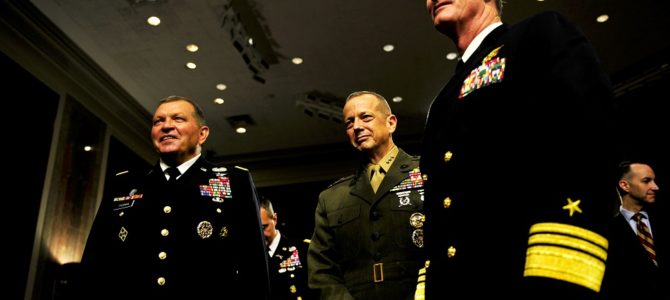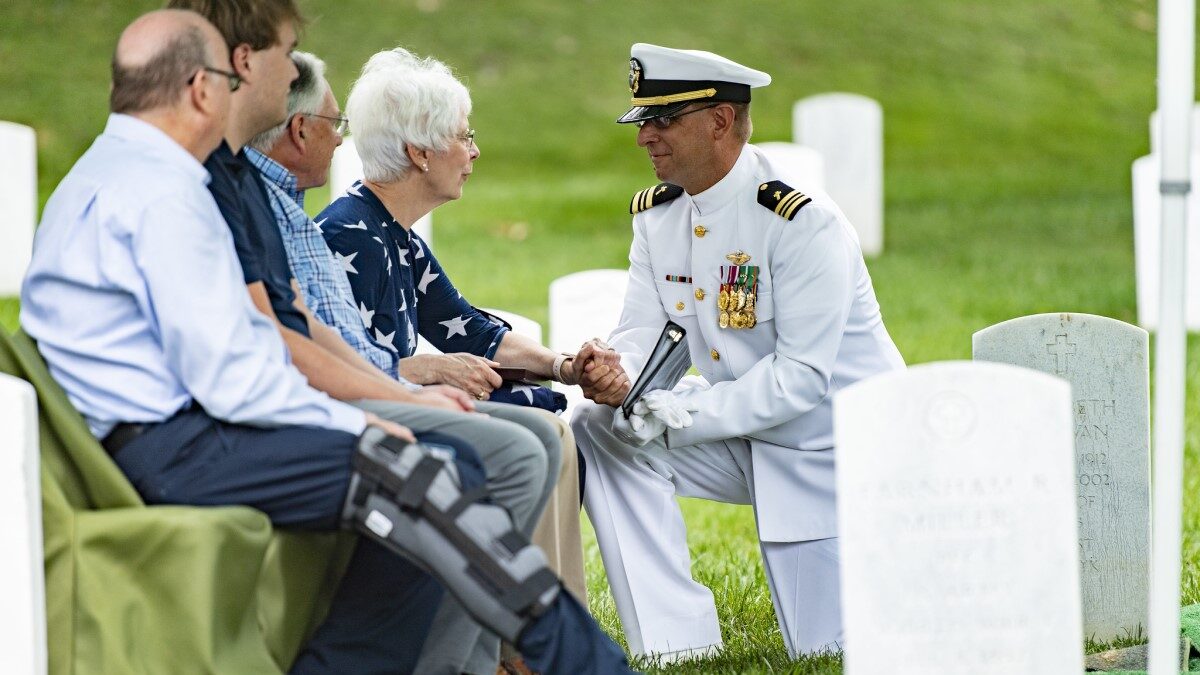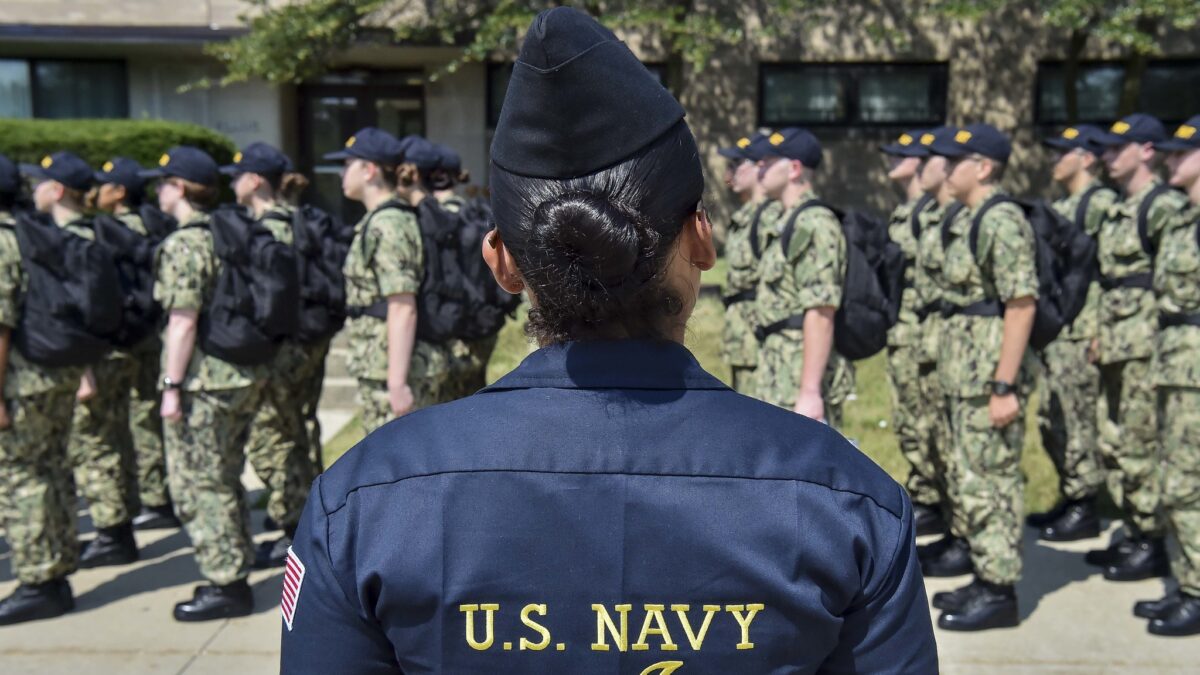
A good friend of mine forwarded me Edward Chang’s response to Ret. Adm. William McRaven’s October 17 op-ed in The New York Times. Chang calls for retired military officers to “shut up about politics.” While well-intentioned Americans on all ends of the political spectrum can agree or disagree with McRaven’s opinion, the suggestion that retired military officers cannot fully exercise their First Amendment rights is loathsome and a direct affront to our country’s representative form of government, which Chang purports to defend.
Chang shows his first misunderstanding of the situation when he states, “As part of the ethos of military professionalism, service members are forced to preserve a façade of non-partisanship to maintain the public’s trust in an institution committed to preserving and defending the entire nation.”
No. The public trusts the military because they know service members will put the mission ahead of their individual partisan beliefs. No one believes service members are non-partisan even if their job requires them to keep these beliefs to themselves. The military makes a determined effort to ensure every member eligible to vote is registered to do so. What if one of those members votes against the sitting president? Would Chang call that member’s vote disloyal or illegal?
Chang quotes McRaven: “Here’s the big point McRaven seemed intent on getting across: ‘if this president doesn’t demonstrate the leadership that America needs, both domestically and abroad, then it is time for a new person in the Oval Office — Republican, Democrat or independent — the sooner, the better. The fate of our Republic depends upon it.’”
Chang goes on to analyze McRaven’s quote by writing, “Let there be no mistake: McRaven is leveraging the uniform he once wore and the reputation he cultivated in the military to influence readers. Given the readership of The New York Times, this op-ed was clearly intended reach a wide audience, including potential voters. McRaven is intent on encouraging the public to turn against President Trump. It matters not that McRaven’s retired, because the public recognizes him not as a private citizen, but as an admiral and a decorated Navy SEAL, a perception McRaven is very likely aware of and embraces.”
Here Chang gets it partially correct. Yes, McRaven has a well-established reputation due to his military service and many citizens remember him as both a decorated SEAL and a four-star flag officer. And yes, the admiral is trying to reach as many voters as possible by posting his opinion in The New York Times that America needs a new person occupying the Oval Office. But here is where Chang makes the mistake that is fatal to his response. McRaven is now a private citizen and his right to express his opinion on this, or almost any other matter, is guaranteed by the Bill of Rights. Any effort to silence retired military officers from exercising their First Amendment rights is an anathema to the U.S. Constitution.
Furthermore, McRaven’s reputation is based upon his accomplishments in the military. When he left the military he was allowed to take those accomplishments with him, just like any other service member does.
Chang expands his condemnation when he writes, “In addition to McRaven, there’ve been numerous other instances of retired military officers, including Martin Dempsey, Stanley McChrystal, and Joseph Votel openly criticizing the president. While none of these criticisms rise to the level of McRaven’s, the intended message being collectively conveyed seems to be: Trump doesn’t have the confidence of America’s current and former military brass.”
Once again, each of these three retired generals has the right to criticize the president. As for Chang’s conclusion they speak for all current and retired military brass, I have never heard any of them claim this and I would be the first one to correct them if they did.
Chang does make a valid point when he describes as “alarming” the number of active-duty troops who anonymously criticize national policy to the media. The restrictions placed upon members of the military currently serving are clear. If they believe their orders are illegal, immoral, or unethical there are procedures to bring these concerns to the proper authorities. If they find their orders or national policy merely distasteful, they should resign. Secretary of Defense Jim Mattis did.
Chang suggests members of the military are trying to steer the president away from his preferred policies and this constitutes “shirking” of their duties. He is incorrect on this point too. The Joint Chiefs of Staff, and their deputies, are mandated by statute to advise the president of the United States on national security matters. The president can choose to take their counsel or keep his own. Once they have been issued, I am unaware of any presidential orders being disobeyed.
Chang alludes to the demise of the republic when he writes, “Most troubling, perhaps, is the role the American people might play in a possible civil-military crisis. As scholars have discovered, the public has increasingly come to find military disobedience justifiable. This is particularly unsettling given how polarizing and unpopular the Trump presidency has been.”
This study, if accurate, says far more about the American public then it does about the American military. Perhaps it is best that those citizens who find military disobedience justifiable are not in the military.
Chang begins to wrap by circling back to McRaven’s op-ed and commenting, “McRaven may feel he’s serving his country by voicing opposition. But by calling on the public to oust Trump in 2020, he may very well have crossed the line from making questionable remarks to engaging in overtly political rhetoric.” Yes, McRaven’s op-ed could be construed as political rhetoric. As a private citizen, he is absolutely allowed to engage in such speech.
Chang concludes his remarks by claiming McRaven’s remarks endanger our government: “He’s not the only one. Just as the public trusts the military above all institutions, McRaven ought to trust the American public to decide for themselves whether Trump should stay or go. The normalized exploitation of military service for partisan political purposes should never be acceptable, and Americans must outright reject it. Failure to do so means representative government is in trouble.”
Chang fails to see that McRaven is the American public now that he is retired. As such, his right to criticize the president should not be abridged just because he chose to serve honorably in the U.S. military for 37 years. As for Chang’s call for military service to never be exploited for political purposes, if Chang is ready to condemn McRaven for just writing an article, what punishment does he think should befall Ulysses S. Grant and Dwight D. Eisenhower for being elected president? Their military service was certainly one of the cornerstones of their political campaigns.
Chang’s concern that our representative government is in trouble because of McRaven’s op-ed is unfounded. Instead, McRaven’s exercise of his First Amendment right is a sure sign that our representative government is alive and well.









